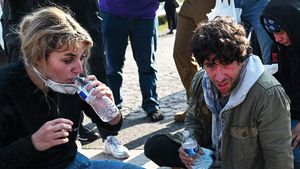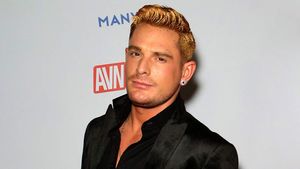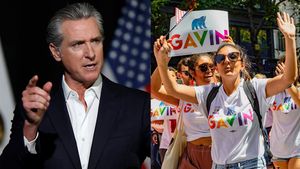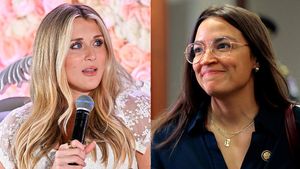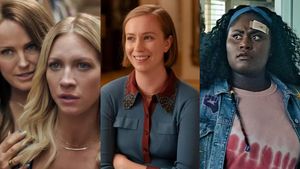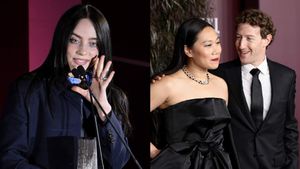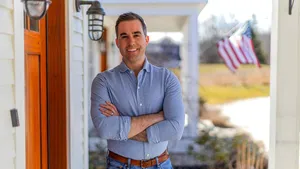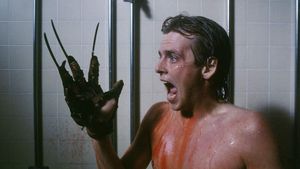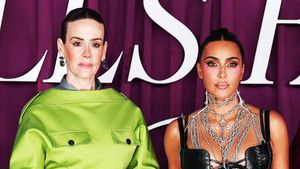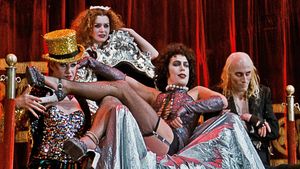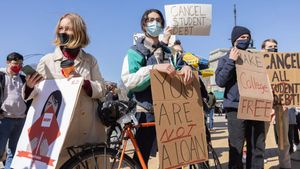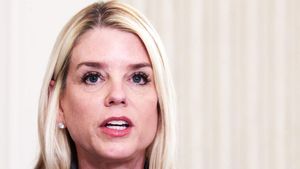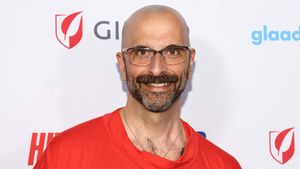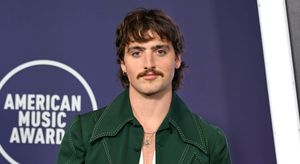
Treatment GuideJust DiagnosedSex & DatingAfrican AmericanStigmaAsk the HIV DocPrEP En EspañolNewsVoicesPrint IssueVideoOut 100
CONTACTCAREER OPPORTUNITIESADVERTISE WITH USPRIVACY POLICYPRIVACY PREFERENCESTERMS OF USELEGAL NOTICE
© 2025 Pride Publishing Inc.
All Rights reserved
All Rights reserved
By continuing to use our site, you agree to our Privacy Policy and Terms of Use.
Almost 30 years have passed since Dionne Warwick and friends Elton John, Gladys Knight, and Stevie Wonder recorded their smash-hit charity single, 'That's What Friends Are For.' The song generated over $3 million for the American Foundation for AIDS Research and heralded a new era of celebrity-driven fundraising and activism. Some things have not changed for the New Jersey-born performer whose career has spanned five decades of hits, many composed by Burt Bacharach and Hal David, such as 'Don't Make Me Over,' 'Alfie,' and 'Walk On By.' 'Lyrically, it's the same message of 'I'm going to be there for you,'' said Warwick, 70, before a September town hall she organized on HIV/AIDS in New York City. 'Friends are the ones who are there for you. That's exactly what this is all about. Being human. Having humanity.' The town hall, presented with Harlem United Community AIDS Center, drew nearly 200 audience members, most of them African-American, to ask questions and hear perspectives from leaders in the health, policy, advocacy, and religious communities. Panelists included Warwick, actress Sheryl Lee Ralph'a member of the original Broadway cast of Dreamgirls and founder of an HIV-charity called The DIVA Foundation'and Rae Lewis Thornton, the first African-American woman to tell her story of living with AIDS to a major publication, Essence, in 1994. 'Education is really the key,' Warwick said. 'We have to know what we're fighting in order to be able to fight it.' She speaks from experience. Warwick lost her assistant to AIDS in the 1980s before the disease even had a name and before Rock Hudson had put a face to it. Her assistant, initially thought to be suffering from cancer, would be the first of many among her colleagues to face the disease. 'I'm a performer. The industry I am in has lost a multitude of talented people,' she said. 'That's when I had a very strong message sent to me to stop talking and start doing, and as a result of it, my advocacy started getting known throughout the country.' These days, Warwick's advocacy continues in communities like Harlem, site of her early gigs. The rates of HIV infection in some American cities rival those in sub-Saharan Africa, with young African-Americans hit particularly hard, according to the latest statistics for the Centers for Disease Control and Prevention. 'Economics, nothing more than that,' said Warwick, when asked for her thoughts on the cause of the disproportionate impact. Still, she said that services have multiplied and improved over the years, and she encouraged young people to take responsibility, as she and other pioneering celebrities did 30 years ago. 'Prior to that, there was no place for African-Americans to go, which gave me even more strength to combat this thing,' she said. '[Today] there is help on every corner you turn. Take your butts in there and get some testing done and get some information.' One thing she refused to do is blame the music industry. Performers' involvement seems lacking today compared to 1985, but Warwick said responsibility should be shared. 'I really wish people would get a handle on that,' she said. 'Although we do have a loud voice, and a multitude of audiences that we can relay information to, I think it's the responsibility of mankind, period. Everybody has to play a part in this issue, as they do with cancer, as they do with heart disease, as they do with diabetes, as they do with any other devastating disease.' A part-time resident of Brazil for some years, Warwick pursued global opportunities to bring attention to the fight against AIDS and combine that work with other causes. President Ronald Reagan appointed her the United States Ambassador of Health in 1987, and in 2002, she became the Goodwill Ambassador of the Food and Agriculture Organization of the United Nations. She also selected the Hunger Project as her charity during her stint on The Celebrity Apprentice. 'The Hunger Project, and my position with FAO, concentrate on feeding and teaching those countries abroad how to potentially feed themselves,' she said. 'The concentration is primarily that, and I do speak of AIDS during any of the times that I am actively involved with these hunger issues.' She credits her religious upbringing and belief in the power of prayer for guiding her work. Warwick thinks faith can play a key role in the fight against AIDS. 'I was always told'my grandfather was a minister'that the reason we are on Earth is to be of service to each other,' she said. 'I'm not fanatical about my religion. I believe in God and prayer and I think that it's brought me a long way. So yes, I'm religious.' Whether it's due to faith or good genes, Warwick isn't slowing down. As she enters her second half-century in show business, she plans on keeping up her philanthropy. Warwick says she owes it to her fans. 'I think that our celebrity is predicated upon the communities that support us,' she said. 'If they're going to support your career, the least that can be done is that you support and give back.'
From our Sponsors
Most Popular
BREAKING: Supreme Court rules to save free access to preventive care, including PrEP
June 27 2025 10:32 AM
Thanks to U=U, HIV-positive people can live long, happy, healthy lives
July 25 2025 2:37 PM
Plus: Featured Video
Latest Stories
Amazing People of 2025: Javier Muñoz
October 17 2025 7:35 PM
It’s National PrEP Day! Learn the latest about HIV prevention
October 10 2025 9:00 AM
“I am the steward of my ship”: John Gibson rewrites his HIV narrative
September 16 2025 2:56 PM
“So much life to live”: Eric Nieves on thriving with HIV
September 03 2025 11:37 AM
The Talk: Owning your voice
August 25 2025 8:16 PM
The lab coat just got queer
August 21 2025 10:00 AM
Messenger RNA could be the key to an HIV vaccine — but government cuts pose a threat
August 20 2025 8:02 AM
The Talk: Beyond the exam room
August 13 2025 3:15 PM
The Talk: Navigating your treatment
August 01 2025 6:02 PM
The Talk: Starting the conversation
July 25 2025 4:47 PM
How the Black AIDS Institute continues to fill in the gaps
July 25 2025 1:06 PM
“I felt like a butterfly”: Niko Flowers on reclaiming life with HIV
July 23 2025 12:22 PM
Dancer. Healer. Survivor. DéShaun Armbrister is all of the above
July 02 2025 8:23 PM
1985: the year the AIDS crisis finally broke through the silence
June 26 2025 11:24 AM
VIDEO: A man living with HIV discusses his journey to fatherhood
June 10 2025 4:58 PM
Trump admin guts $258 million in funding for HIV vaccine research
June 03 2025 3:47 PM
Grindr is reminding us why jockstraps are so sexy and iconic
May 02 2025 5:36 PM
HRC holds 'die-in' to protest Trump health care cuts
April 28 2025 2:11 PM



























